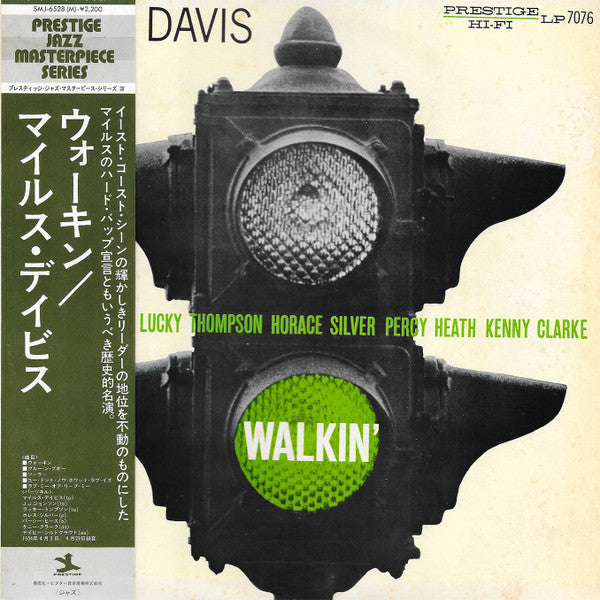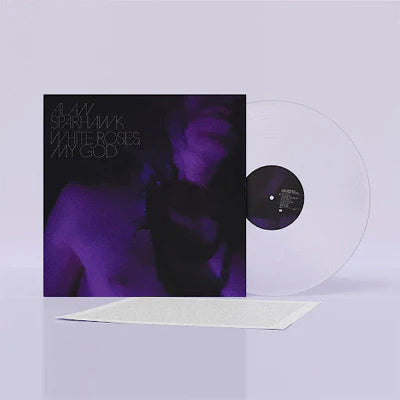ORIGIN : Japan
LABEL : Prestige Records
CONDITION OF COVER, OBI & INSERT : EX
CONDITION OF RECORD : EX+
RECORD GRADING DEFINITIONS
MINT: Never opened, still in original shrink wrap.
NM: Opened, appears unplayed.
EX: A few very light surface hair-line marks with no major deterioration to the sound quality.
VG: A few light scratches and/or scuffs creating audible background noise. There is no skipping or jumping on this record unless indicated in the condition description.
A plus or minus (+ or -) denotes slightly better or slightly less than a grade, eg. VG+.
Each record has been cleaned and played to ensure the accuracy of the following grading
Walkin' Review by Lindsay Planer
The undeniable strength and conviction present in Miles Davis' performance on Walkin', underscores the urgency and passion with which he would rightfully reclaim his status as a primary architect of bop. Davis is supported by his all-stars, consisting of his primary rhythm unit: Horace Silver (piano), Percy Heath (bass), and Kenny Clarke (drums). The sextet featured on the title track, as well as "Blue 'n' Boogie," adds the talents of J.J. Johnson (trombone) and Lucky Thompson (tenor sax). Davis' quintet includes the primary trio and Dave Schildkraut (alto sax). Perhaps not an instantly recognizable name, Schildkraut nonetheless made some notable contributions to Stan Kenton's Kenton Showcase EPs, concurrent with his work with Miles. Walkin' commences with the extended title track, which follows a standard 12-bar blues theme. While the solos from Johnson and Thomson are unique, Miles retains a palpable sense of extrication from the music -- as if the song was an extension of his solo instead of the other way around. The lethargic rhythms reiterate the subtle adornments of the horn section to the basic trio. In direct contrast to "Walkin'" is a full-tilt jumper, "Blue 'n' Boogie." The improvisation yields some truly memorable solos and exchanges between Davis and Johnson -- who can be heard clearly quoting from Thelonious Monk's "Rhythm-A-Ning." "Solar" maintains a healthy tempo while drawing the listener in to the delicate interplay where the solos often dictate the melody. Horace Silver's piano solo is Ellington-esque in it's subdued elegance. The final track, "Love Me or Leave Me," gives the most solid indication of the direction Miles' impending breakthrough would take. So swift and certain is each note of his solo, it reflects the accuracy of someone thinking several notes ahead of what he is playing. Walking is a thoroughly solid effort.





